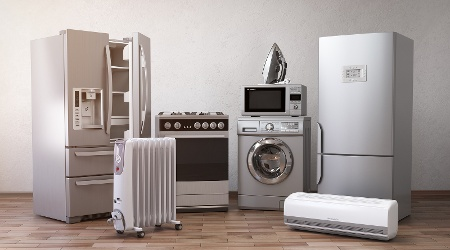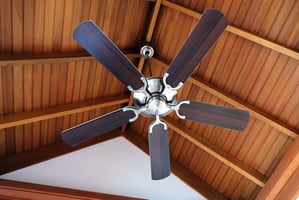While Earth Day is in the rearview mirror for the year, the annual celebration on April 22nd...
What Should I Know About Energy Efficient Appliances?
 One of the most effective ways to reduce your energy bill is to replace old appliances with energy-efficient models. However, anyone who has visited an appliance store knows the selection is vast and often overwhelming. You will probably ask, "Where do I begin?"
One of the most effective ways to reduce your energy bill is to replace old appliances with energy-efficient models. However, anyone who has visited an appliance store knows the selection is vast and often overwhelming. You will probably ask, "Where do I begin?"
What is the advantage of energy efficiency?
Before you begin shopping for appliances, it's helpful to understand the advantages of energy-efficient products. Some of the most notable benefits include:
- Save money, especially in the long-term
- Become more environmentally friendly by using less energy
- Increase home safety (many energy efficient appliances run at a lower temperature, are made using current manufacturing practices, and don’t have wear and tear)
What energy type of efficient appliances are available?
All of the major home appliances have energy efficient models available. This includes:
- Washers
- Dryers
- Dishwashers
- Water heaters
- Heating/cooling systems
- Refrigerators
- Ovens and stoves
Also, there are several other household basics you can upgrade to more energy efficient options, such as TVs, light bulbs, microwaves, and more.
How to choose energy efficient appliances – where to start?
Shopping for energy efficient appliances is basically the same as shopping for regular appliances. Narrowing the field is going to depend on your needs. Start by identifying size and function. Some questions to consider are:
- What size appliance fits my space?
- How much power will it need to function properly and efficiently in my home? (think home size – for example, an HVAC system that is too small/not enough power may end up working overtime)
- What capabilities do I need? (for example, if you cook a lot, how many burners do you prefer)
- What’s my typical usage for this appliance?
Once you have the basic parameters, you can move forward and identify which models available are energy efficient. Typically, they will carry an Energy Guide label and possibly even have energy saving settings.
How to compare energy rating labels, and what do they mean?
There are several ways to choose between energy efficient models. Start by looking at the Energy Guide labels: These yellow labels will give you efficiency statistics. One of the most helpful is the estimated annual electricity consumption. Comparing labels can provide insight into how much you may save over time.
Appliances with the Energy Star Label (or logo) meet stringent requirements for efficiency. They are an excellent place to start. Look for those that have both good efficiency statistics and that meet your home's needs ( i.e., size, functions, etc.). These will be the models you choose between.
Are Energy Star appliances worth it?
Although Energy Star appliances often cost more than their less efficient counterparts, take the time to calculate your long-term savings, especially with appliances that use a lot of energy. The operating cost is a huge factor in how much an appliance really costs overall. Like your car, the initial purchase price is only part of the big picture.
When you crunch the numbers, you may find it's worth it to pick the most efficient model, even if it's the priciest. It also depends on how big of a range there is between the most and least efficient models. If the difference is significant, it will likely save you more over time.
A handy tip when shopping energy efficient appliances is to search current Energy Star award winners, both in performance and efficiency.
Which of your appliances use the most energy?
Heating and cooling systems use the most energy by far, around 47%. After that, it’s your water heater, washer and dryer, and lighting (all use between 12-14%). The oven and dishwasher use the least electricity of your major appliances.
Don’t miss out on rebates and incentives.
One of the last things to keep in mind when choosing energy efficient appliances is rebates and incentives. Major retailers like Home Depot often have instant rebates, while your local DC Metro area utility may offer other incentives as well, so check the website. Also, you can look for tax credits or anything that helps reduce the initial cost.



